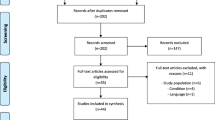Abstract
Introduction and hypothesis
World Health Organisation data suggest that two million women live with the physical and psychosocial effects of obstetric fistula. As part of an expanded fistula programme in Tanzania, Comprehensive Community Based Rehabilitation in Tanzania (CCBRT) introduced an evaluation strategy to include impact of surgery on psychosocial aspects of obstetric fistula. This is an initial report documenting morbidity on admission.
Methods
A questionnaire assessing the impact of obstetric fistula was developed taking into account literature in the field including sections on: patient contact information, transport costs and a set of statements regarding the effects of fistula. The effects were spread across five domains: the physical consequences of obstetric fistula, the effects of a difficult delivery and possible stillbirth, the experience of isolation, the inability to undertake daily living activities and feelings of depression. The questionnaire was administered in Kiswahili by Tanzanian counsellors shortly after admission of patients onto the fistula ward.
Results
A total of 100 fistula patients reported high rates of physical and psychosocial morbidity. Over half of the patients said they would not have been able to access treatment without the transport costs being covered.
Conclusions
Fistula patients are affected by extremely high rates of physical and psychosocial morbidity. Further work is required to confirm these findings, validate assessment tools and assess contributing factors in greater detail over time, such as the effect of stillbirth, as well as the impact of surgery.

Similar content being viewed by others
References
Semere L, Nour NM (2008) Obstetric fistula: living with incontinence and shame. Rev Obstet Gynecol 1(4):193–197
AbouZahr C (2003) Global burden of maternal death and disability. Br Med Bull 67:1–11
Christian Social Services Commission (CSSC) (2005) Brief report on fistula stakeholders meeting. Available via http://www.cssc.or.tz/modules/documents/index.php?action=downloadfile&filename=Report%20on%20Fistula.doc&directory=CSSC%20DOCUMENTS/CSSC%20Reports&PHPSESSID=uhj8ql23kt3pk4psn82mcqkvn0
The national road map strategic plan to accelerate reduction of maternal, newborn, and child deaths in Tanzania, 2008–2015 (2008) Ministry of Health and Social Welfare (MoHSW), Dar es Salaam
Alio AP, Merrell L, Roxburgh K et al (2010) The psychosocial impact of vesico-vaginal fistula in Niger. Arch Gynecol Obstet 284(2):371–378
Mselle LT, Moland KM, Evjen-Olsen B, Mvungi A, Kohi TW (2011) “I am nothing”: experiences of loss among women suffering from severe birth injuries in Tanzania. BMC Womens Health 11:49
Arrowsmith S, Hamlin EC, Wall LL (1996) Obstructed labor injury complex: obstetric fistula formation and the multifaceted morbidity of maternal birth trauma in the developing world. Obstet Gynecol Surv 51(9):568–574
Gharoro EP, Agholor KN (2009) Aspects of psychosocial problems of patients with vesico-vaginal fistula. J Obstet Gynaecol 29(7):644–647
Ahmed S, Holtz SA (2007) Social and economic consequences of obstetric fistula: life changed forever? Int J Gynaecol Obstet 99:S10–S15
Kelly J (1998) Vesico-vaginal and recto-vaginal fistulae. J Obstet Gynaecol 18:249–251
Kabir M, Iliyasu IS, Abubaker IS, Umar UI (2003) Medico-social problems of patients with vesico-vaginal fistula in Murtala Mohammed Specialist Hospital, Kano. Ann Afr Med 2(2):54–57
National Bureau of Statistics (NBS) (Tanzania) and ORC Macro (2005) Tanzania Demographic and Health Survey 2004–2005. NBS and ORC Macro, Calverton
Wall L (2006) Obstetric vesicovaginal fistula as an international public-health problem. Lancet 368:1201–1209
Murphy M (1981) Social consequences of vesico-vaginal fistula in northern Nigeria. J Biosoc Sci 13(2):139–150
Islam AL, Begum A (1992) A psycho-social study on genito-urinary fistula. Bangladesh Med Res Counc Bull 18(2):82–94
Goh JTW, Sloane KM, Krause HG, Browning A, Akhter S (2005) Mental health screening in women with genital tract fistulae. BJOG 112:1328–1330
Johnson KA, Turan JM, Hailemariam L, Mengsteab E, Jena D, Polan ML (2010) The role of counseling for obstetric fistula patients: lessons learned from Eritrea. Patient Educ Couns 80(2):262–265
Fiander AN, Vanneste T (2012) transportMYpatient: an initiative to overcome the barrier of transport costs for patients accessing treatment for obstetric fistulae and cleft lip in Tanzania. Trop Doct 42:77–79
Bangser M (2011) Making mobile phones work for women with fistula: the M-PESA experience in Kenya and Tanzania. Fistula Care at EngenderHealth. Available via http://www.fistulacare.org/pages/pdf/technical-briefs/mobile_phone_brief_updated4.5.2011.pdf
Ng’weno A (2010) How mobile money has changed lives in Kenya. Global Savings Forum. Bill & Melinda Gates Foundation. Available via http://www.gatesfoundation.org/financialservicesforthepoor/Documents/mobile-money.pdf
Acknowledgements
The Vodafone Foundation is funding the expanded vesico-vaginal fistula service at CCBRT 2012–16. We would like to acknowledge the expertise and help of Gill Cassar of Dalberg Global Development Advisors, Geneva, Switzerland, in designing the ‘fistula assessment tool’ used in this evaluation.
Conflicts of interest
None.
Author information
Authors and Affiliations
Corresponding author
Rights and permissions
About this article
Cite this article
Siddle, K., Mwambingu, S., Malinga, T. et al. Psychosocial impact of obstetric fistula in women presenting for surgical care in Tanzania. Int Urogynecol J 24, 1215–1220 (2013). https://doi.org/10.1007/s00192-012-1994-6
Received:
Accepted:
Published:
Issue Date:
DOI: https://doi.org/10.1007/s00192-012-1994-6




